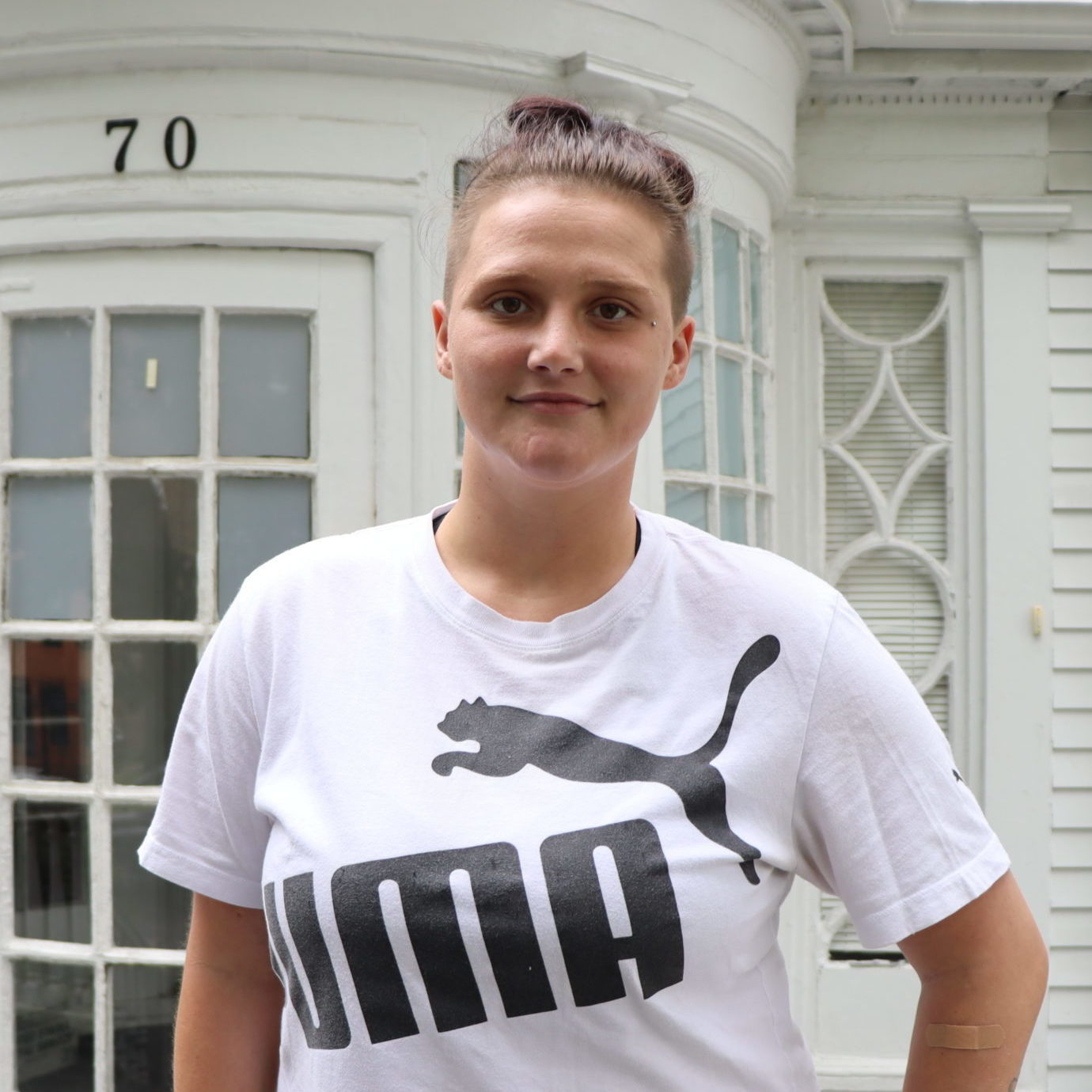
A New Outlook at New Joelyn’s
Chances are if you visit Alyssa at New Joelyn’s, one of our residential recovery homes for women, you’ll find her working out or deep into an online meditation class. “The gym is a way for me to release all my energy,” Alyssa will tell you, “and meditation calms me down.” As you get to know Alyssa, this makes sense: She is a wonderful combination of strength and vulnerability. Both are serving her well.
Alyssa will tell you that New Joelyn’s is “not my first rodeo.” She’s in her twenties now, but when she was 17 she started going in and out of different substance use treatment programs. Her family — “my greatest support system” — made her seek the help she clearly needed. But she kept falling into the same cycle. “I’ve relapsed a bunch of times,” Alyssa says, “but I don’t think of it as a bad thing anymore. That’s just how my story goes.”
After relapsing again while in an extended recovery program in Maine, Alyssa realized what was preventing her from staying on her path to recovery. “It was me,” she says. “It got to the point where I couldn’t stay sober out there. As much as I tried to tell myself I was ready, I’d find myself getting so sick of where I got myself again. And it’s fast. It happens fast.” She returned to Massachusetts and found New Joelyn’s in March. And this time, things are different.
“When I got here, that’s all I did. I gave myself a chance. I didn’t do anything that I wanted to do. I took every suggestion, followed every rule they told me to do, I put the footwork in, and I tried my hardest. It can be a whole 360 and it can definitely change your life.”
“I just want to give myself the most time possible to focus on what I need to focus on. Myself and my recovery. And what I have to do here, that’s most important,” says Alyssa, noting that she had never given herself a chance to stay in a program long enough to know “what could really happen.”
“She really struggled when she first got here,” says Christine Kelly, Senior Counselor at New Joelyn’s. “It took her some time to adjust and find her place. But now, she is one of the biggest role models. I always tell Alyssa that you can see that change in her.”
In the last six months at New Joelyn’s, Alyssa has grown to become a leading force in her Victory Programs community, someone others look to for support. It’s not surprising. She’s outgoing and has a lot of energy. She’s funny and she laughs a lot. But she gets serious when it comes to discussing recovery for herself and others and how she approaches it. She knows from experience that a strong support system will help people cope and get them where they want to be.
Today, Alyssa is working towards finding a union apprenticeship and becoming a recovery coach. She hopes sharing her experiences with others will help people realize that recovery is possible. “There are possibilities [for me] now and options,” says Alyssa, “and that’s amazing, you know? Because that was never the case before. There are a lot of things that can work, but you need to work them if you want them to work.”

